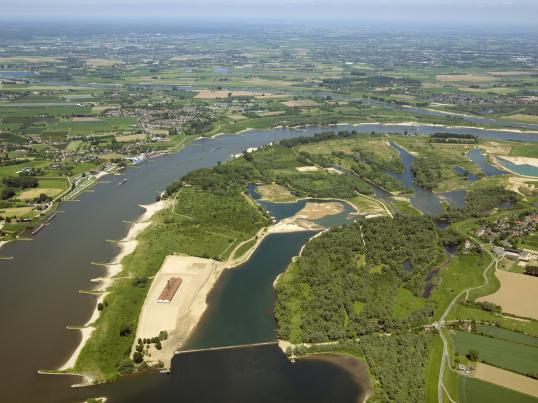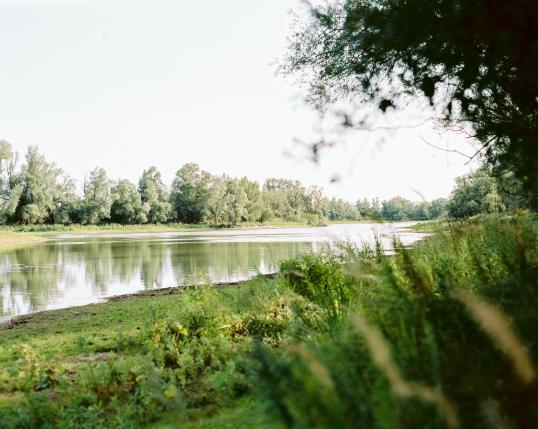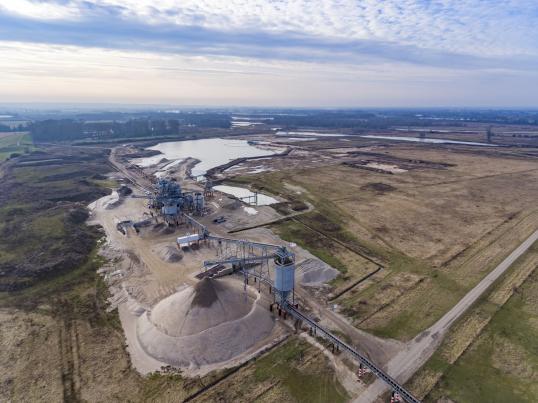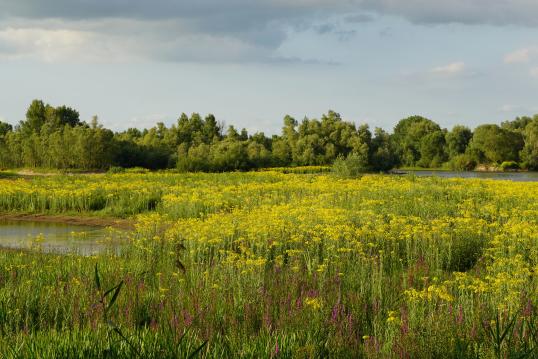
About the finalist
| Lead applicants | K3Delta; Staatsbosbeheer; Boskalis; Wetering |
| Category | Working together for nature |
| Countries involved | Netherlands |
| Main Natura 2000 sites | Rijntakken (the Netherlands) |
| Website | https://millingerwaard.k3.nl/experience/kwelvingers |
Overview
In the 1990s, the Netherlands experienced extremely high water levels, and many residents living near rivers had to be evacuated. This led to the development of the 'Room for the River' state programme, aimed at re-naturalising river sections to prevent flooding.
The Millingerwaard, an area located within the Natura 2000 ‘Rijntakken’ site, was the first area to be targeted by this programme. The Millingerwaard area was initially mostly dedicated to agriculture and clay extraction.
K3Delta, a private company specialised in area development with a focus on combining raw materials extraction with sustainable landscape development, was joined in this venture by contractors Boskalis (global dredging and offshore contractor) and Van de Wetering (a family-owned business specialising in forging and metal processing), as well as the Staatsbosbeheer, which is the government organisation responsible for forestry and the management of nature reserves and Natura 2000.
Their aim was to reconcile stakeholder interests while converting intensively farmed land within the Natura 2000 Rijntakken site into a large-scale nature development to provide flood protection.
The actions undertaken included land planning, negotiations with farmers and other land users, digging of channels, extraction of raw materials and habitat recreation. Several farmers and a brick factory had to be relocated to new places outside the floodplain.
To negotiate potential and actual conflicts of interest on the site, conciliation was achieved by involving all stakeholders in a joint planning procedure. The resulting plan, which was eventually supported by all stakeholders, led to the development of a unique 400-hectare nature area with rich biodiversity, including riparian forests, marshes and herb-rich grasslands, which provides flood safety for residents and businesses along with recreational opportunities. Walking and cycling paths, a tea garden, landscaped gardens and works of art provide a diverse set of recreation interests for residents and visitors.
Although this type of river re-development work is very costly, the Millingerwaard project was partly self-financing. The depreciation of the conversion of agricultural plots into natural land was fully paid for by the extraction of sand and clay, which at the same time made a significant contribution to the demand for raw materials for Dutch construction needs.
The establishment of voluntary agreements between landowners, public authorities, nature organisations and mineral extractors guarantees the long-term permanence of the achievements. The nature restoration achievements are self-sustaining and need no additional investment, as nature will now evolve without the need for further human intervention.
Pictures from the finalist
Details
- Publication date
- 14 March 2024
- Author
- Directorate-General for Environment





